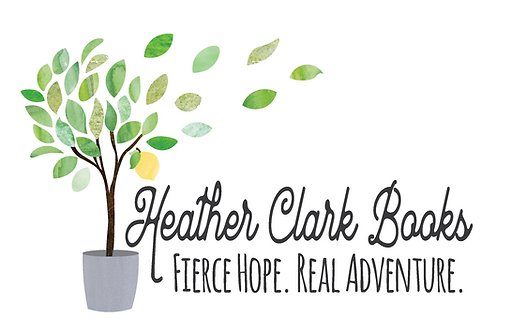Blog Tour
- Heather Clark

- Oct 28, 2013
- 4 min read
Updated: Feb 10, 2022

Thanks so much to Stephanie Kelley for inviting me to be a part of this blog tour! Go read her blog post for the tour. It was fun to get to know her better.
Without further ado, here are my answers to the questions:
1. What are you working on right now?
I’m currently prepping my literary MG contemporary novel for NaNoWriMo. Here’s the pitch:
I SEE YOU, EM PERKINS
Em Perkins’ distracted writer father has Relapsing-Remitting MS, and her grandmother has cataracts. Em herself has a case of Relapsing-Remitting invisibility, and it’s about to become chronic. The day she writes a description of herself into her father’s novel, and he deletes it, she knows time is running out to make herself visible again. But when she snips one of Mrs. Hindley’s roses, she hears the words that change everything. “I see you, Em Perkins.” Bad deeds can make an invisible child visible, if only for a little while. But when Em’s unlikely friend, dirty, fat, neglected Henry is going to have to spend three weeks in summer with his abusive father, Emily knows they’ve got to become visible, permanently. Otherwise how will anyone pay attention to what they say, and how can she save Henry? How to pull it off–commit an act of Ultimate Evil.
2. How does it differ from other works in its genre?
Tough question. I think this story is not edgy at all. It’s really innocent and sweet. It has a literary feel, and I think it will make people cry. If my test audiences are any indication, it will. I hope people will fall in love with my spunky, action-oriented MC. She is a fireball, and she won’t stay down for long.
3. Why do you write what you do?
I write for children because I can’t bring myself to care about writing for adults. I enjoy reading about adults, but when I try to think up an adult novel concept, I draw a complete blank. Always have.
I finished reading The Penderwicks by Jeanne Birdsall and the Casson Family series by Hilary McKay—both masterpieces—and I knew my next project had to be a literary MG with a familial feel. Something that almost feels like it was written in another time, because it’s so innocent and ageless. This story came to me, and I had almost the whole thing plotted in a few days while I attended the Writing and Illustrating for Young Readers conference in Salt Lake City, Utah. Martine Leavitt and her lectures on desire and obstacles in fiction were life-changing for me as an author.
This story was born from learning how to use those building blocks to make a story with high stakes. Also, I think children’s feelings are amazing. I will never stop being interested in what makes us grow and progress and discover who we are.
My last two novels were YA contemporary stories. I am so excited to write about the emotional journeys of teenagers. They are right in the crucible of becoming. It never gets old to examine why they do what they do, why they feel what they feel.
Plus, who wouldn’t want to professionally relive their deepest fears, most embarrassing moments, and first loves? It’s a permanent high.
4. How does your writing process work?
It involves a lot of stolen moments. Early mornings before my kids wake up for school, nap time sprint-writing, post-bedtime while my husband works on his MBA and I type until my fingers fall off with my friend Rebecca checking in with me every half an hour to keep us both accountable.
I draft at about 1000 words a day. I go from beginning to end, straight through. Whenever I make a major change, I make note of what I have to go back and fix, and keep writing. I’ve learned that if I keep going back to Chapter 1 to tweak things, I’ll never finish, and I’ll never find out what my book really is in the end. I do write to an outline, but I change things all the time. I don’t think I’ll ever write a book straight through as originally planned.
When that is finished, I chop up the novel, cutting out all the stuff that no longer fits, and rewriting for story.
Then I do a syllabic, word-choice cutting edit. This last novel required a cut of about 25%. Honestly, I think I’ll do that every time. It was amazing, watching my writing grow stronger by the minute. I cut 34,000 words in about three and a half weeks. My brain hurt. Then I lay down and died, and my children climbed all over me, so thankful to have their mommy back.
Then, I get several critiques, and do another round of revisions, and send things off to my fabulous agent, Louise Fury of The Bent Agency.
At least… that’s what I do this time around.
I’m learning the process one day at a time. Maybe one of these days, I’ll just know how to write an awesome novel straight through, but I’m not holding my breath.





Comments